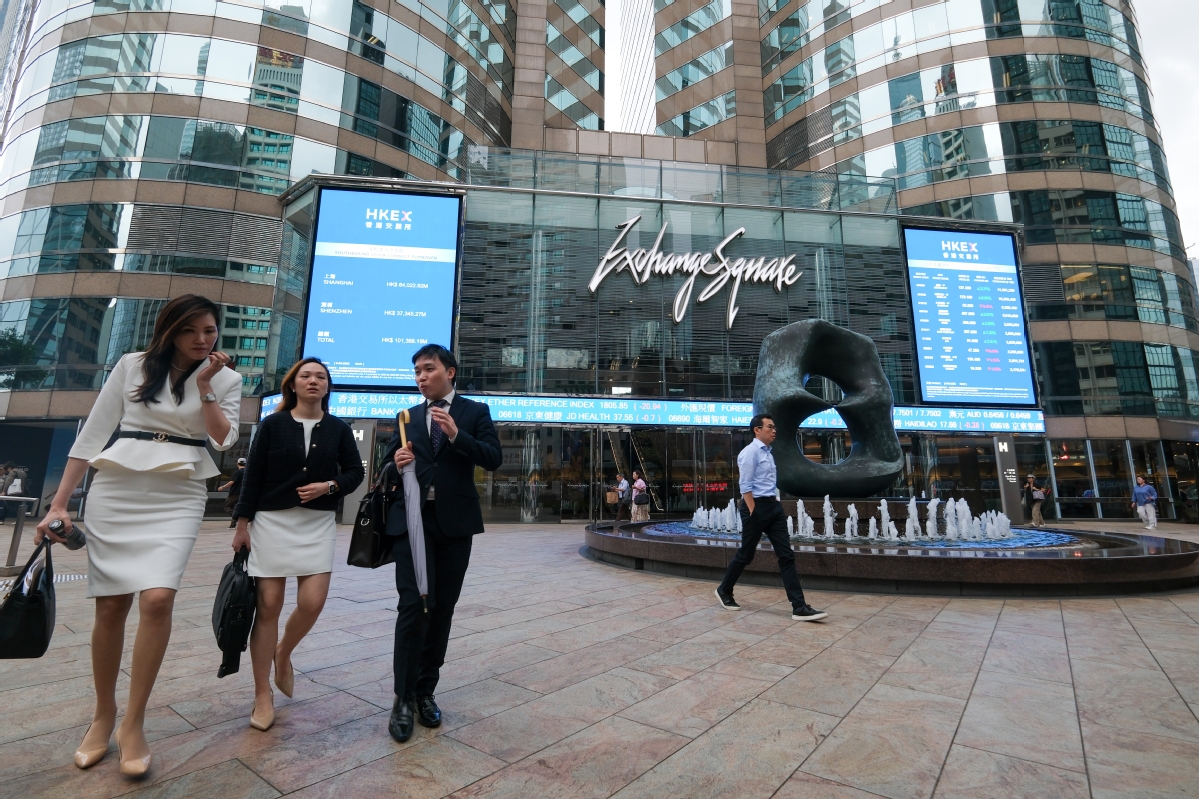Mainland insurers increase holdings in HK-listed firms
Nation's insurance companies willing to expand their investment in HKSAR


During the first half of the year, Chinese mainland insurers have stepped up their holdings in Hong Kong-listed companies, a trend which is likely to continue thanks to the high yields and market vibrancy seen in the Hong Kong Special Administrative Region's market, experts said.
Public announcements showed that 13 out of the 19 major increased shareholding cases reported by Chinese mainland insurance companies so far this year have targeted companies trading on the Hong Kong stock exchange.
According to China's regulations, an investor should make an announcement if their holding in a listed company has reached 5 percent or above.
According to the latest report released by the Insurance Asset Management Association of China, 63 percent of the surveyed Chinese mainland insurers will expand their investment in Hong Kong stocks this year.
During the annual business news conference held in March, Yu Rongquan, general manager of CPIC AMC, the investment arm of China Pacific Insurance (Group) Co Ltd, said that high-dividend stocks in Hong Kong are major targets for insurance companies' increased shareholding. This helps to improve insurers' net investment returns.
As the risk-free yield in the bond market has been slowly declining in recent years, high-dividend stocks can compensate and hedge against the downward trend, he said.
Banks trading on the Hong Kong bourse, which provide higher dividends, have thus been the most sought after by these insurers. Seven out of the 13 shareholding increase cases made by insurers at the Hong Kong stock market were those targeting banks, accounting for 64 percent of the combined market cap of all 19 share increase cases.
Companies from energy and real estate industries have also provided high dividends this year, but the stability of these sectors is lower than that of banks, Meng Lei, China equity strategist at UBS Securities, explained.
Given that the average duration of insurance capital is longer, at around seven to 10 years, stability is prioritized, resulting in insurers' preference over banks, telecommunication companies and utility companies, he added.
Among the 42 constituents of the AH banking index compiled by China Securities Index Co Ltd, 14 are listed in Hong Kong, whose average dividend rate has been higher than their peers trading on Chinese mainland bourses. Meanwhile, eight of them have provided a dividend ratio higher than 5 percent, while the industry average has been around 4.14 percent so far this year.
Guo Yiming, head of investment advisory at Jufeng Investment, said that insurers prefer Hong Kong stocks to their peers in the Chinese mainland mainly because of the former's lower market valuation, higher liquidity and dividends.
In a low interest rate environment, insurance capital will see their interest rate income contract. They need high-yield assets to offset such a decline. The higher yields generated in the Hong Kong stock market, combined with the favorable tax policy for dividend income generated by Hong Kong stock investment, can effectively address insurers' pressure regarding lowering net investment returns, he said.
Experts from Huatai Securities explained that insurance companies' profit volatility will aggravate as the country's new accounting standards, which took effect in July 2024, have included changes such as encouraging insurance companies to measure financial assets according to their fair value.
The trend started to take shape last year. Data from IAMAC showed that 99 insurance companies made investments via the Stock Connect program in 2024, mainly investing in the financial, energy and telecommunications industries. The average annual return rate of these investments came to 15 percent, 10 percentage points higher than one year ago.
According to UBS, discretionary consumption, finance, information technology, healthcare and energy have so far this year been the top five industries attracting the most capital from the southbound leg of Stock Connect, via which Chinese mainland investors buy into Hong Kong stocks.
Hong Kong market's bullish performance so far this year has been another attraction. During the first half of the year, the Hang Seng Index gained about 20 percent, only second to the 28 percent year-on-year increase reported by South Korea's major stock market index KOSPI.
The Hong Kong stock market has also been the most vibrant globally in terms of initial public offering activities.
During the first half of the year, total IPO proceeds registered at the Hong Kong bourse came to approximately HK$107 billion ($13.63 billion), which was seven times the figure collected in the same period of 2024 and exceeded last year's whole year amount of $11 billion.




































